Wray Castle Ltd offers a comprehensive range of UMTS training courses designed to equip professionals with the knowledge and skills needed to excel in the ever-evolving telecommunications industry. UMTS, or Universal Mobile Telecommunications System, is a key technology in the evolution of mobile communications, providing high-speed data transmission and multimedia services to mobile users.
Our UMTS training courses cover a wide range of topics, including UMTS architecture, protocols, radio network planning, optimization, and troubleshooting. Whether you are new to UMTS or looking to deepen your understanding of the technology, our courses are designed to meet your specific learning needs.
Our UMTS training courses are developed by industry experts with years of experience in the field, ensuring that you receive the most up-to-date and relevant information. The courses are delivered in a variety of formats, including live virtual sessions, self-paced modules, and on-demand industry primers, allowing you to choose the format that best fits your schedule and learning preferences.
By enrolling in our UMTS training courses, you will gain practical skills that can be immediately applied in your day-to-day work. Whether you are a network engineer, project manager, or telecommunications professional, our courses will help you stay ahead of the curve and advance your career in this dynamic industry.
In addition to the comprehensive content of our UMTS training courses, learners also benefit from our Wray Castle Hub, a user-friendly platform that provides access to over 500 hours of content, tutor support, digital badges, webinars, glossaries, and more. Our platform is trusted by professionals across operators, vendors, regulators, and government institutions, making it a valuable resource for your professional development.
Don't miss out on the opportunity to enhance your skills and knowledge in UMTS technology. Enroll in our UMTS training courses today and take your career to the next level with Wray Castle Ltd.
UMTS Training Courses
-

Wray Castle Industry Primers Collection
The Wray Castle Industry Primer collection gives you unlimited access to our growing library of short, focused online training courses. Get upskilled on your chosen topics in just 3 hours with our collection of new short online primers. Our primers cover the key technology and business topics shaping the industry today and tomorrow. You'll benefit from videos, illustrated course books, dedicated tutor support, and regular assessments and earn digital badges to showcase your achievements. A subscription gives you access to all the existing primers below plus all future primers as and when they are published, so you'll always stay ahead of the latest developments across the industry.
£450.00
-

Wray Castle Learning Account
Upskill your workforce with flexible, scalable training solutions The Wray Castle Learning Account offers a flexible, scalable training solution for organizations, enabling upfront budgeting, tailored programs, and comprehensive reporting. Key Features Customised Programmes - Work directly with us to build training programmes tailored to your organization's needs, ensuring budget safety and scalable delivery. Wide Course Variety - Access live sessions, live virtual training, e-learning modules, private team workshops, and expert consultancy services. Upfront Planning - Allocate funds in advance, plan training strategically, align with organizational goals, and gain comprehensive reporting on spend and consumption. Programme Benefits Budget Control & Safety - Maintain complete oversight of training expenditure with upfront allocation. Strategic Alignment - Plan training initiatives with competency assessment options to meet organizational goals. Additional Resources - Access webinars, primers, and supplementary learning materials. Visibility & Reporting - Comprehensive tracking and reporting on training consumption and ROI. Broad Topic Coverage - Wide range of subject areas to address diverse training needs. Simplified Invoicing - VAT invoicing and payment via Purchase Order for streamlined procurement. The Wray Castle Learning Account is ideal for: Organizations seeking to centralize training and budgets. Teams with predictable training spend looking for simplified invoicing and reporting. Organizations requiring scalable training solutions for growing teams L&D and Training Managers who need to demonstrate clear ROI. Ready to transform your training contact us today?
POA: Private Course
-
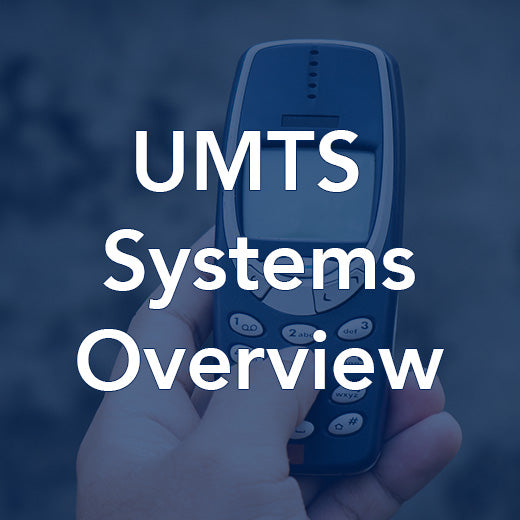
UMTS System Overview
The Universal Mobile Telecommunications System (UMTS) is a complex technology with extensive technical specifications. Wray Castle offers a two-day course (Course Code: MB350) that provides a high-level overview of UMTS, making it easier to grasp the intricacies of this technology. This course is designed for individuals seeking a technical introduction to the UMTS network, including its architecture, capabilities, and operations in conjunction with other networks. Participants in this course will benefit from a condensed learning experience that covers UMTS evolution, 3G standardization, spectrum allocation, services, network architecture, radio environment, core network operation, and more. Prior knowledge of 2G network operations and services is helpful, as well as the ability to understand technical information. By the end of the course, attendees will have a better understanding of UMTS channels, air interface operation, network procedures, power control, handover, and CDMA operation. Enhance your knowledge of UMTS with Wray Castle's comprehensive course that breaks down the complexities of this technology into digestible information. Join us for a two-day, high-level focused learning experience that will accelerate your understanding of UMTS and its role in the telecommunications industry. Who would benefit Those requiring a technical introduction to the UMTS network, its architecture, capabilities and operations including how it interworks with other networks. Prerequisites An appreciation of 2G network operation and services and an ability to comprehend technical information is beneficial. Topic Areas Include UMTS evolution and 3G standardization 3G spectrum allocation UMTS services and service aims UMTS network architecture UMTS radio environment and system areas Asynchronous Transfer Mode (ATM) Core network operation The IP Multimedia Subsystem (IMS) CDMA operation and code types Power control and handover UMTS channels and air interface operation UMTS network procedures
POA: Private Course
-
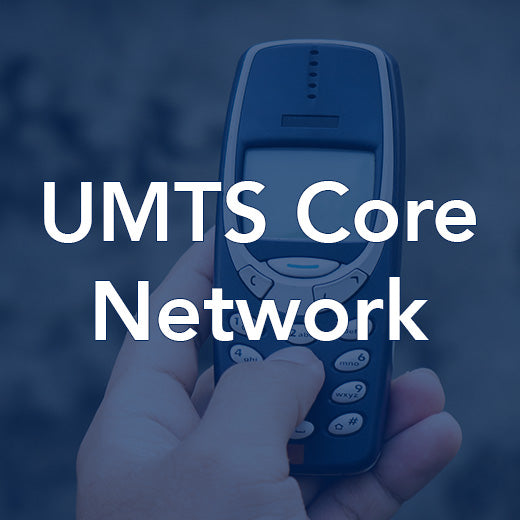
UMTS Core Network
This course provides a clear and logically organized tour of the 3GPP UMTS circuit-switched and packet-switched core network domains. The course describes the operation of the main core network protocols and outlines the evolutionary path towards an all IP based network. The functions of the various interfaces are explained including those towards the Evolved Packet Core (EPC). References are made to the latest releases of 3GPP specifications throughout the course. The UMTS Core Network course offered by Wray Castle is designed to provide a comprehensive understanding of UMTS core network architecture, interfaces, protocols, and operation. This course covers both the circuit-switched and packet-switched core network domains, explaining the main core network protocols and outlining the evolution towards an all IP-based network. Participants will learn about the functions of various interfaces, including those towards the Evolved Packet Core (EPC), and references are made to the latest releases of 3GPP specifications throughout the course. Ideal for those in the telecommunications industry or related fields, this course is beneficial for individuals seeking to enhance their knowledge of UMTS core network functionalities. Participants will gain insights into topics such as UMTS core network architectures, ATM, RANAP, Iu protocol, mobility management, interworking with 2G, 4G, and WLAN, multimedia messaging services, security functions, charging, and the evolution to the Evolved Packet Core (EPC). Familiarity with UMTS network architecture and basic knowledge of IP and OSI seven-layer model will be advantageous for participants looking to make the most of this course. Who would benefit Those requiring a comprehensive understanding of UMTS core network architecture, interfaces, protocols and operation, including the Release 4 circuit switched core network, the packet switched core network, associated functions such as security, charging, signalling protocols and location based services. Prerequisites Familiarity with the architecture and general operation of a UMTS network is beneficial. Some knowledge of IP and the OSI seven-layer model will also be advantageous. Topic Areas Include UMTS core network architectures Asynchronous Transfer Mode (ATM) RANAP Iu protocol Circuit-switched core network procedures Packet-switched core network functionality Mobility management Interworking with 2G, 4G and WLAN Multimedia Messaging Service (MMS) IN and CAMEL Location Services (LCS) Security functions Charging Evolution to the Evolved Packet Core (EPC)
POA: Private Course
-
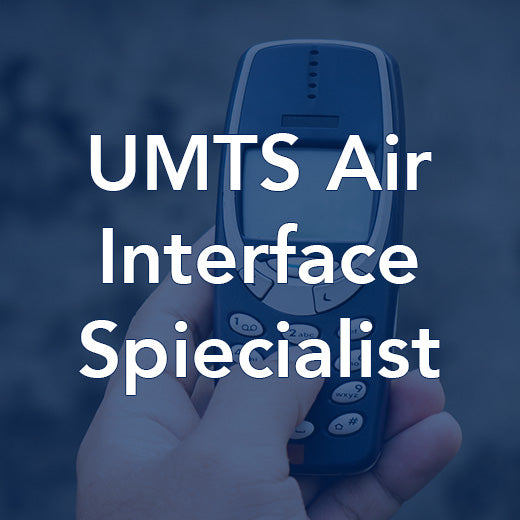
UMTS Air Interface Specialist Workshop
Join our UMTS Air Interface Specialist Workshop to deepen your understanding of the UMTS air interface environment. This course, with the course code MB1301, is designed for senior technical personnel involved in planning, designing, or supporting UMTS air interface systems. Whether you are looking to enhance your knowledge of the CDMA receiver, CDMA code functions, physical layer functions, or High Speed Packet Access (HSPA), this workshop will equip you with the necessary skills to excel in your role. By attending this workshop, you will gain valuable insights and practical knowledge that will benefit your work in the UMTS air interface environment. Don't miss this opportunity to expand your expertise and take your career to the next level. Prerequisites Attendance on this course assumes previous attendance on the UMTS Air Interface Live-on-Web course or equivalent knowledge. Contents The CDMA Receiver CDMA Code Functions Physical Layer Functions High Speed Packet Access (HSPA)
POA: Private Course
-
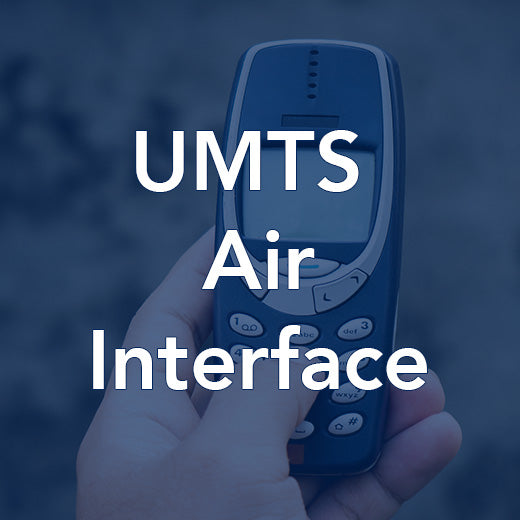
UMTS Air Interface
The UMTS Air Interface course offered by Wray Castle provides a comprehensive technical overview of the structure and operation of the UMTS air interface protocol stack. Ideal for individuals requiring a deep understanding of the UMTS air interface protocol stack from layers 1 to 3, this course covers a wide range of topic areas including the aims of a UMTS network, principles of spread spectrum technology, CDMA, UTRAN protocols, power control, layer 2 and layer 3 protocols, handover scenarios, security, and more. Participants are expected to have some prior knowledge of the UMTS network and its operation, or have attended the UMTS System Overview course (MB350) to fully benefit from this technical course. By enrolling in the UMTS Air Interface course at Wray Castle, participants can gain valuable insights and expertise in UMTS technology, enabling them to stay ahead in the rapidly evolving telecommunications industry. Don't miss this opportunity to expand your knowledge and enhance your skills in UMTS air interface protocols. Who would benefit Those requiring a comprehensive technical overview of the structure and operation of the UMTS air interface protocol stack from layers 1 to 3. Prerequisites This course is technical in nature and assumes some knowledge of the UMTS network and its operation, or previous attendance on the UMTS System Overview course (MB350). Topic Areas Include Aims of a UMTS network Principles of spread spectrum technology Principles of CDMA and the use of codes UMTS air interface protocol structure Overview of UTRAN protocols Functions of Layer 1 Analysis of physical channels Power control Layer 2 protocols – RLC, MAC and PDCP Layer 3 protocol – RRC Synchronization and idle mode activities Network access and radio network identities Connected mode activities Handover scenarios Transmit diversity Security and error protection
POA: Private Course
-
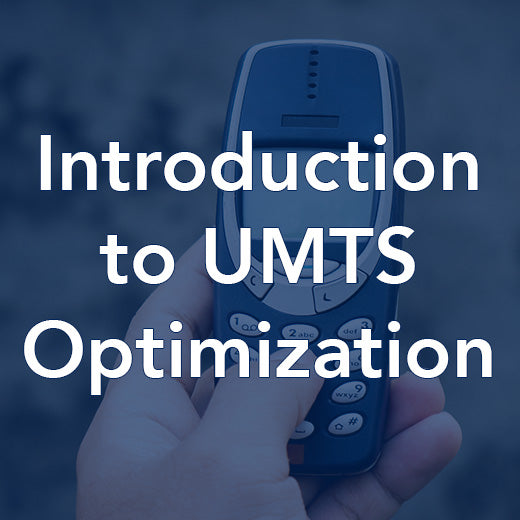
Introduction to UMTS Optimization
Course Code: RP2400 Course Summary This course highlights the differences between optimizing a GSM network and a WCDMA network. The course focuses on the parameters and features which can be used to fine-tune a WCDMA air interface. Who would benefit Those who require an introduction to the principles and techniques that relate to optimizing the UMTS FDD mode Radio Access Network (RAN). Prerequisites An understanding of UMTS air interface operation and an appreciation or experience of UMTS cell planning, or previous attendance on the UMTS Air Interface course (MB2002) and the Cell Planning for UMTS Networks course (MB2005). Topic Areas Include The WCDMA optimization process Identification of optimization opportunities Tools for optimization The coverage-capacity-quality relationship Drive test tools, performance data and statistics management Link budgets Coverage and capacity optimization issues and solutions Repeater solutions Antenna solutions LNA solutions Soft handover solutions RAN configurations and dimensioning Idle mode and system access parameters Connected mode parameters Radio link control parameters UMTS features – HSDPA, MIMO Includes optimization exercises.
POA: Private Course
-
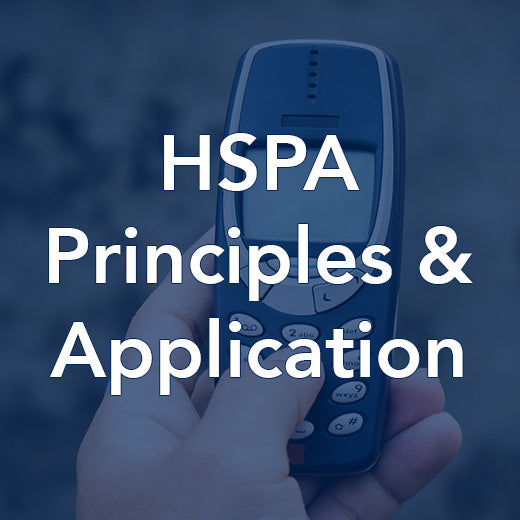
HSPA Principles and Application
This one-day course provides a clear and logically organized explanation of both HSDPA and the E-DCH for both HSPA and the introduction to HSPA+ capabilities. In addition to the comprehensive training course on HSPA principles and applications, participants can expect to gain a deeper understanding of key topic areas such as HSDPA protocol structure, MAC architecture, HSDPA physical layer functions, device categories, and implementation. The course also covers HSUPA protocol structure, channels, physical layer functions, device categories, and the establishment of a HSUPA connection. Participants will also learn about cell change procedures, enhanced uplink protocols, soft handover, and the implications for network design and operation. This one-day course is designed for individuals who require a technical overview of HSDPA and HSUPA, and how these technologies impact network design and operation. Participants should have familiarity with the structure and operation of the UMTS air interface at Release 99 and Release 4, or have previously attended the UMTS Air Interface course (MB2002). By the end of the course, participants will have a clear and logically organized explanation of HSDPA, E-DCH, and an introduction to HSPA+ capabilities, equipping them with the knowledge and skills needed to excel in the field of wireless communication technologies. Who would benefit Those who require a technical overview of HSDPA and HSUPA and the implications for network design and operation. Prerequisites Familiarity with the structure and operation of the UMTS air interface at Release 99 and Release 4, or previous attendance on the UMTS Air Interface course (MB2002). Topic Areas Include Introduction to HSPA HSDPA protocol structure MAC architecture HSDPA channels HSDPA physical layer functions HSDPA device categories HSDPA implementation Cell change procedures Enhanced uplink protocols HSUPA protocol structure MAC architecture HSUPA channels HSUPA physical layer functions HSUPA device categories Establishment of a HSUPA connection Soft handover
POA: Private Course
-
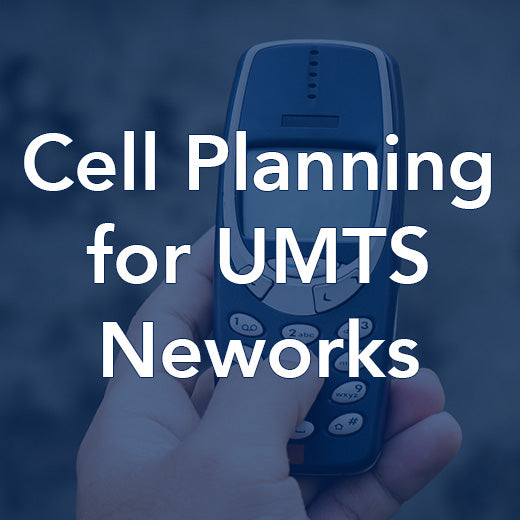
Cell Planning for UMTS Networks
Course Summary Expand your cell planning skills with our Cell Planning for UMTS Networks training course. This 2-day course is designed for experienced GSM cell planners looking to transition into planning WCDMA networks. Gain a comprehensive understanding of the differences in techniques and tools required for successful UMTS network planning. Who would benefit from this course? Experienced cell planners seeking to enhance their skills in planning Frequency Division Duplex (FDD) UMTS networks. Prerequisites include prior experience with UMTS network operation and basic radio awareness, or previous attendance on our UMTS Air Interface course (MB2002). Topics covered in this course include the WCDMA planning philosophy, UMTS structure review, scrambling codes, coverage predictions, link budgets, HSPA link budgets, cell load analysis, cell breathing, traffic analysis, predictions and simulations, Monte Carlo simulations, and co-siting GSM and WCDMA equipment. Elevate your cell planning expertise with our Cell Planning for UMTS Networks training course. Who would benefit This course provides experienced cell planners with an introduction to the differences required in technique, skill sets and tools for planning Frequency Division Duplex (FDD) UMTS networks. Prerequisites Experience of UMTS network operation, as well as basic radio awareness, or previous attendance on the UMTS Air Interface course (MB2002). Topic Areas Include The WCDMA planning philosophy Review of UMTS structure Review of UMTS logical, transport and physical channels Scrambling codes WCDMA considerations Coverage predictions Link budgets HSPA link budgets Analysis of cell load Cell breathing Traffic analysis Predictions and simulations Monte Carlo simulations Co-siting GSM and WCDMA equipment
POA: Private Course
-
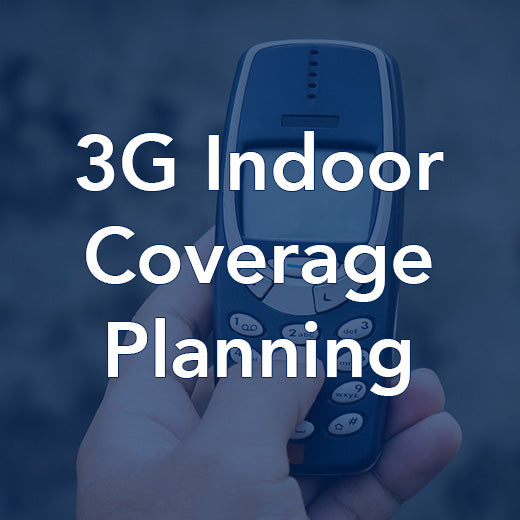
3G Indoor Coverage Planning
Course Summary Enhance your skills in 3G indoor coverage planning with our comprehensive training course. Designed for experienced GSM indoor planners looking to transition into WCDMA coverage, this course covers various indoor scenarios and planning techniques to provide you with the knowledge and expertise needed in indoor UMTS coverage. Ideal for engineers moving into UMTS indoor coverage or those working in planning-related roles, this course delves into topics such as traffic dimensioning, propagation modeling, link budgets, antenna positioning, and more. With practical planning exercises included, you will gain hands-on experience to apply your learnings in real-world scenarios.Don't miss this opportunity to advance your career in indoor coverage planning. Who would benefit Experienced GSM indoor planning engineers moving into UMTS indoor coverage, as well as those working in planning-related areas or needing to understand UMTS planning considerations. Prerequisites Attendees should already have knowledge and experience of GSM indoor coverage planning. Previous attendance on the UMTS Air Interface course (MB2002) is advantageous. Topic Areas Include: Traffic dimensioning Office and corporate scenarios Shopping centres Packet-switched traffic Propagation modelling Measurements Link budgets Antenna positioning Tunnels Stadiums RF safety (ICNIRP) Picocells Repeaters Femtocells Distributed antennas Fibre distribution Integrating indoor cells Includes practical planning exercises.
POA: Private Course























